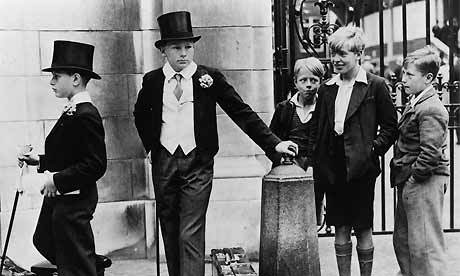 The power of ideas is vastly underrated in British politics. It has become fashionable to dismiss them as “ideology” and declare oneself in favour of “what works”. But the idea of what works is, of course, driven by concepts. As Keynes put it:
The power of ideas is vastly underrated in British politics. It has become fashionable to dismiss them as “ideology” and declare oneself in favour of “what works”. But the idea of what works is, of course, driven by concepts. As Keynes put it:
I write this because ConHome has just run a piece by Max Wind-Cowie saying, “Equality should not be a dirty word for the Conservatives”.“Practical men, who believe themselves to be quite exempt from any intellectual influence, are usually the slave of some defunct economist.”
I do admire the way Demos, seeing Labour on the way out, is trying to inject as much of its agenda as possible into the Conservative party. But “equality” is, alas, a trap. There is a fundamental distinction between inequality and poverty – and I’d argue that the latter should be the focus of the Conservatives’ attention. Confusing the two, as Labour has done, means ignoring the impact of poverty. The poorest are getting poorer in British society, and this is a scandal which is not made any better if the richest are getting poorer too.
The late William Letwin, a brilliant man, edited a book about this a while ago called Against Equality (The Specator ran a leader, with the same title, a while ago). As soon as you fail to distinguish between poverty and inequality, you stop coming up with policies that would genuinely help the poor.
So while inequality (as measured by the Gini coefficent) has risen to new heights under Labour – and, as the left likes to point out, it rose rapidly under Thatcher – that isn’t really the point. Or, rather, it’s only half of the point. After all, the Gini index ranks Bosnia, Ukraine, Ethiopia, Bangladesh, Egypt and Vietnam as more equal than the UK. But in which of these countries is it better to be poor?
This misconception is shared by charities like Christian Aid, which rail against the “rising inequality” in India. But that inequality is because – thanks to globalisation and the free market – we are seeing more rich and middle-class people in India. And, as a consequence, poverty is falling like a stone. The truth that many don’t want to face is that, often, greater inequality is the price you pay to tackle poverty.
I sincerely hope that a Conservative government makes a clean break from the poverty analysis methods which led to the staggering failure of the Labour years. For 13 years, Labour fought poverty – and poverty won. It’s time to give the Conservatives a go. And worrying about statistical indices of inequality can only distract attention from the single most important mission in Britain today.







Comments